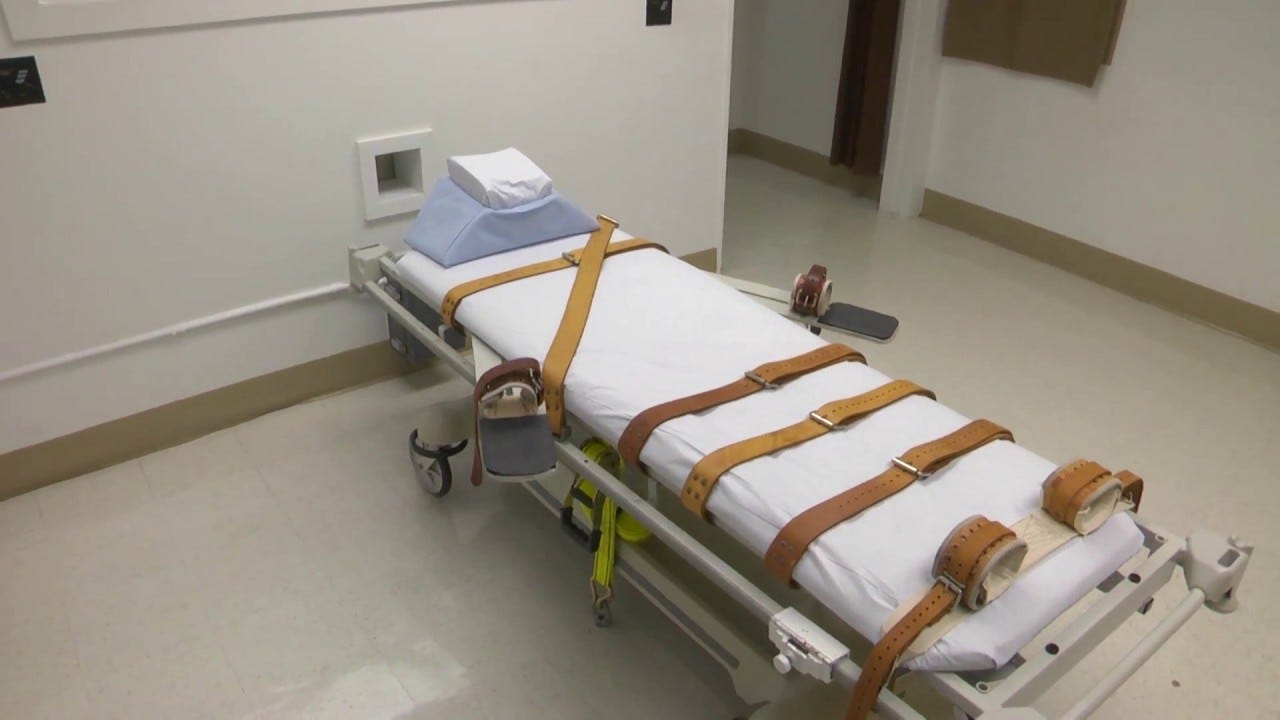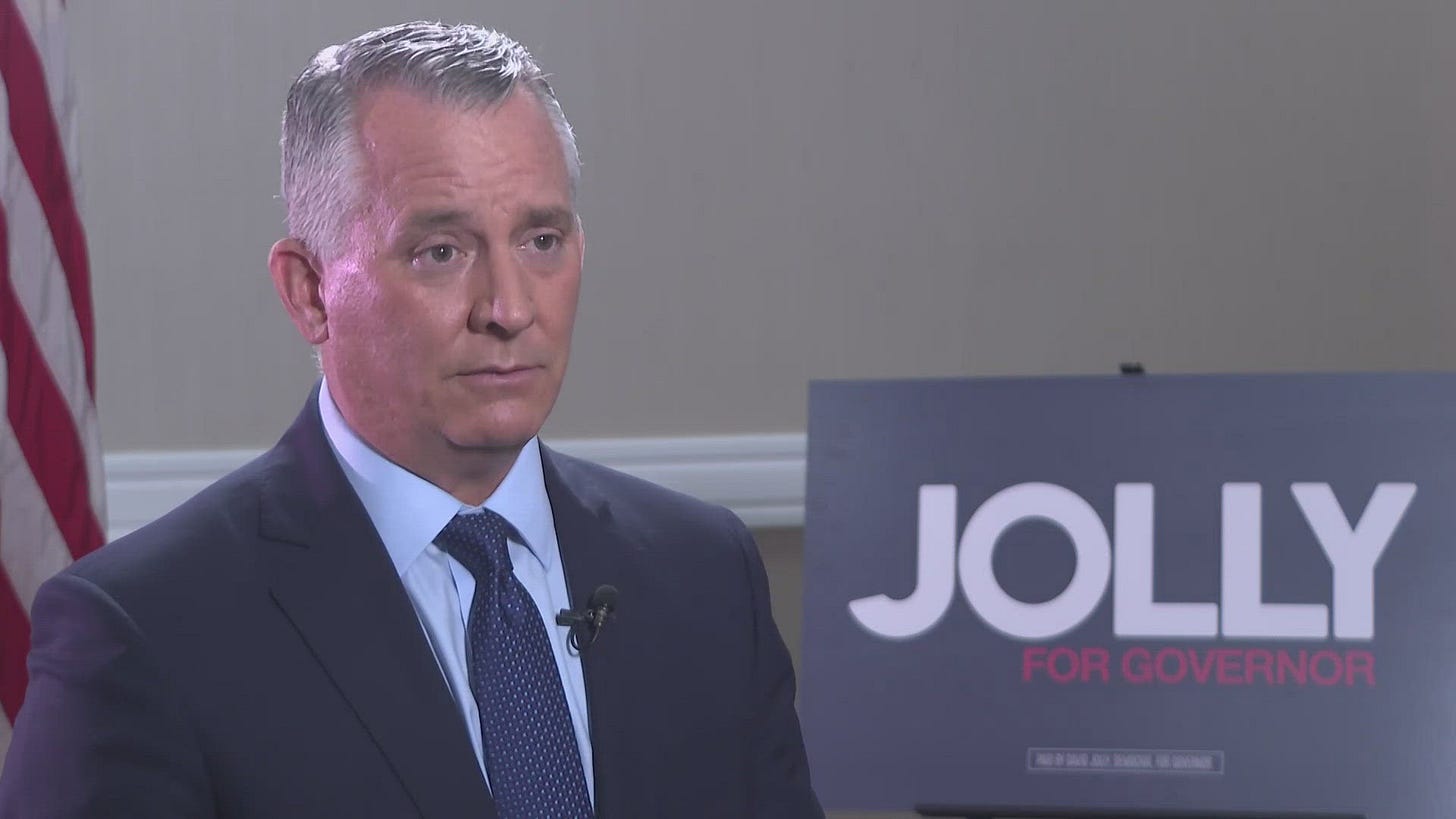Florida Lawmakers Reach $50B Deal on Budget Allocations & Osceola County Sheriff Charged in $20M Illegal Gambling Operation
June 9, 2025 - This Week's News from Central Florida
Welcome to this week’s edition of the Central Florida Times, an independent, reader-supported newsletter focusing on the Sunshine State. These are the most important stories you need to know from across Central Florida. To never miss an update, subscribe here:
Here’s the latest from Central Florida…
Florida Lawmakers Reach Deal on $50B in Budget Allocations
State legislative leaders have reached a deal on nearly $50 billion in budget allocations, marking a significant step toward finalizing Florida’s overdue budget for the 2025-26 fiscal year. The agreement, announced just ahead of formal budget conferences, sets the framework for more detailed negotiations. The $49.96 billion allocation includes $17.5 billion for health and human services and $16 billion for pre-K-12 education. Higher education and the criminal and civil justice systems each receive $6.5 billion, while agriculture and the environment are allotted $1.5 billion. Smaller allocations include $675 million for general government and $553 million for transportation, tourism, and economic development. This compromise follows weeks of tension between the House and Senate over spending levels. The Senate originally proposed a $117 billion total budget, while the House sought $112.6 billion, prioritizing deeper recurring revenue cuts. The deal includes $2.25 billion in permanent tax reductions—a compromise from the House's initial aggressive cuts—including a $900 million cut from eliminating the business rent tax, and $250 million in debt reduction. The budget also calls for increasing the Budget Stabilization Fund from 10% to 25%, allowing for $750 million annual payments until the new cap is reached. This constitutional amendment will require voter approval. Lawmakers plan to pass the final budget on June 16 after the mandatory 72-hour review period. Governor Ron DeSantis, who favors substantial property tax reductions, will then have two weeks to review the bill and issue line-item vetoes before the new fiscal year begins July 1.
Osceola County Sheriff Charged in $20M Illegal Gambling Operation
Osceola County Sheriff Marcos Lopez has been arrested and charged with racketeering in connection with a "massive" illegal gambling operation spanning across Central Florida, generating more than $20 million in proceeds. Following the arrest, Governor Ron DeSantis suspended Lopez from office, appointing Florida Highway Patrol Central Region Chief Christoper Blackmon as interim sheriff. Charging documents from Florida Attorney General James Uthmeier's office allege Lopez's involvement in a money-laundering scheme through the Fusion Social Club, an illegal gambling venue in Kissimmee. The operation, which included illicit lotteries and slot machines, allegedly enriched Lopez while in office, dating back to October 2019 and continuing through 2023. U.S. Homeland Security Investigations in Tampa released video of Lopez's arrest, captured while he was in his sheriff's uniform. Investigators say he exploited his position, using confidential law enforcement information to avoid detection. The investigation into the illegal casino operation began in 2023, with prosecutors claiming the now-suspended sheriff pocketed as much as $700,000. Lopez, who will be arraigned in Lake County on June 30, has been a controversial figure since becoming Osceola's first Hispanic sheriff in 2020, facing accusations of personal indiscretions and professional missteps. Attorney General Uthmeier stated the arrest was "a solemn day for Florida and our law enforcement community," emphasizing that the law applies equally to all, regardless of position. Other co-conspirators are expected to face charges in the ongoing investigation.
New Florida Law Allows Inmate Executions by Hanging, Firing Squads, and Nitrogen Gas
Florida has broadened its acceptable methods of carrying out the death penalty, following the passage of a new law signed by Governor Ron DeSantis. House Bill 903, which takes effect July 1, authorizes the state to use any method of execution not found unconstitutional, such as nitrogen gas, hanging, or firing squads, if traditional approaches like lethal injection or the electric chair become unavailable or are struck down by courts. Currently, the latter are the only permitted methods of state executions. This legislative change comes as Florida sees a surge in executions, with seven death warrants signed by DeSantis in the first half of 2025—the most in a single year since 1984. Two of the executions are scheduled for June 2025. The new law responds to nationwide shortages of lethal injection drugs and mirrors moves by other states that have revived or introduced alternative execution methods. There are five states—Idaho, Mississippi, Oklahoma, South Carolina, and Utah—that explicitly allow for execution by firing squad. Supporters say the measure ensures Florida can enforce capital punishment regardless of pharmaceutical supply issues, as companies have been reluctant to provide lethal injection drugs. However, critics, including human rights advocates, argue that expanding to methods like firing squads and hanging is a step backward and raises ethical concerns. The debate unfolds as public support for the death penalty continues to wane, particularly among younger residents. Florida has carried out 111 executions since 1976, when the death penalty was reinstated by the U.S. Supreme Court. There are 271 inmates currently on death row, with all executions carried out at Florida State Prison in Raiford. HB 903, signed by DeSantis, also includes sweeping reforms to Florida’s correctional system, addressing inmate lawsuits, mandatory minimum sentences, disciplinary actions, mental health treatment for inmates, and granting wardens broader authority in medical emergencies.
State Lawmakers Move Closer to Agreement on Education Budget
State House and Senate negotiators are making progress toward finalizing an education budget, closing in on crucial funding for school vouchers, teacher pay, and appropriations for technical programs. Although key differences persist on specific allocations, lawmakers agreed last week to keep a stabilization fund for the universal voucher program, which helps districts manage unexpected changes in student enrollment. However, the amount set aside will be smaller than in previous years. The House also agreed to the Senate's proposal for a special fund supporting advanced and technical programs, abandoning earlier plans to cut the allocation in half. Still, the House is seeking $596 million, ensuring districts receive at least current funding levels, compared to the Senate's $418 million. A major sticking point remains funding for teacher pay increases. The Senate initially proposed $248 million for raises, while the House countered with $101 million. After some negotiation, the Senate added $100 million for broader school personnel costs, prompting the House to adjust its teacher-only offer to $90 million, focusing solely on full-time teachers. The House has also reintroduced a proposal to boost funding for the Schools of Hope charter program, an initiative previously rejected by the Senate. Budget conferences continue as the Legislature works toward a June 16 deadline to pass the overall state budget, leaving school districts awaiting final figures to plan for the next academic year.
New State Law Punishes Juvenile Drug Dealers in Overdose Deaths
Florida has enacted a new law allowing juvenile drug dealers to face third-degree murder charges in fatal fentanyl overdose cases, a significant change driven by the tragic 2024 death of a 17-year-old, who died after taking what he believed were Percocet pills, which actually contained fentanyl. The 17-year-old who sold the drugs could not be charged with murder under previous state law, which only applied to individuals over 18. The case materialized into legislative changes via Senate Bill 612, which passed with near-unanimous support and was signed by Governor Ron DeSantis last month. The law carries a penalty of up to 15 years in prison and takes effect July 1. Prosecutors believe the legislation will deter young dealers who previously considered age a shield from accountability, and help curtail the overall fentanyl crisis, which has led to a surge in accidental overdose deaths.
Federal Judge Upholds Most of Florida's New Ballot Initiative Law
Last week, a federal judge largely denied a request from advocacy groups to block portions of a recently enacted Florida law that alters the process for citizen-led constitutional amendments. U.S. District Judge Mark Walker's decision allows most of the challenged provisions to remain in effect while a lawsuit continues. The law, which imposes tighter deadlines, steeper fines, and new criminal penalties for petition collection efforts, was supported by Governor Ron DeSantis and Republicans, arguing the changes were necessary to combat fraud in the petition process. However, groups like Florida Decides Healthcare, advocating for Medicaid expansion, and Smart & Safe Florida, seeking recreational marijuana legalization, sued, claiming the changes infringe on First Amendment rights and hinder grassroots campaigns. Judge Walker ruled that the law does not “severely burden” political speech, stating requirements such as the 10-day deadline for petition submissions and increased late fines merely make the process costlier and less efficient. However, he did block one provision, agreeing with a plaintiff that expanding election petition fraud into racketeering statutes was unconstitutionally vague. Despite the mixed ruling, plaintiffs expressed optimism, viewing the partial injunction as a victory and vowing to continue their legal challenge against other aspects of the law.
St. Petersburg Approves $5M in Additional Funding for Tropicana Field Repairs
City officials have approved another $5.3 million in funding for Tropicana Field repairs, bringing the city’s total commitment to $38.5 million as it aims to complete renovations by Opening Day 2026. The unanimous City Council vote comes as the Tampa Bay Rays remain displaced at Steinbrenner Field in Tampa after Hurricane Milton severely damaged the Trop’s roof last year. The stadium overhaul is part of a broader $56 million project, partially covered by insurance. The latest funds cover waterproofing, mold remediation, ceiling tiles, and replacing storm-damaged wall panels. Contractors will also begin work on lighting, electric systems, field equipment, and security upgrades once the roof is complete. The council also approved $284,000 for architectural and engineering work and $800,000 for security during construction. Officials expressed concerns about potential cost overruns and noted the repairs could face delays from tariffs and hurricane season. About half of the new roof material has been produced in Germany and will be assembled in China before arriving in August. MLB Commissioner Rob Manfred said the league remains optimistic about the stadium’s readiness, though a road start to the 2026 season remains a possibility to allow for completion.
State Lawmakers Advance Plan to Expand Florida’s Rainy-Day Fund
Florida lawmakers have advanced a proposed constitutional amendment designed to significantly increase the state's financial reserves, aiming to better prepare for economic downturns. The proposal (HJR 5019 and SJR 1908) seeks to raise the cap on the Budget Stabilization Fund, or "rainy-day fund," from 10 percent to 25 percent of general-revenue collections, potentially growing it from $4.75 billion to an estimated $11.88 billion. The recommended measure, which would require approval from at least 60% of voters, could not go into effect until after the November 2026 election. In the interim, lawmakers plan to set aside $750 million annually to bolster the fund. Supporters, including House Speaker Daniel Perez (R-Miami) and Senate President Ben Albritton (R-Wauchula), say the measure ensures Florida remains fiscally secure during future recessions, allowing continued growth and stability. However, the measure has generated criticism from some who argue the annual transfer could divert resources from more pressing immediate needs like infrastructure investment, teacher pay, and healthcare expansion. The Budget Stabilization Fund played a crucial role in mitigating the impacts of the 2008-2009 recession, serving as a vital source of funding to offset substantial revenue shortfalls experienced during that period. The latest plan passed the House Budget Committee in a 23-4 vote and the Senate Appropriations Committee 14-3. Before it reaches voters in November 2026, it must pass the full House and Senate before they adjourn the extended legislative session.
Legislature Remains Divided on School Voucher Funding
As Florida lawmakers continue to negotiate key components of the Pre-K-12 education budget, major differences remain over the management of private school vouchers, student tracking, and related funding allocations. A central concern is the state’s inability to account for roughly 23,000 students receiving taxpayer-funded scholarships. “That’s about $300 million in our budget, which we’re not sure is going to the right place or the right people,” Senate Pre-K-12 Education Appropriations Chair Don Gaetz (R-Pensacola) said, urging reforms to track student enrollment more effectively. The Senate is proposing two application periods and unique student IDs to ensure funding follows students accurately. The chambers are also at odds over how to structure voucher scholarship funding. The Senate excluded voucher students from the Florida Education Finance Program (FEFP), instead creating a $713 million line item, while the House allotted none. The Education Stabilization Fund, which ensures resources for public schools to mitigate potential funding shortfalls as more students opt for vouchers to attend private schools, remains unsettled. The Senate is currently advocating for $15 million while the House proposes zero. Additional divides remain on School Readiness funding, security for Jewish day schools, and restoring funding to the Schools of Hope initiative, designed to improve educational opportunities for students in struggling schools. Negotiations are ongoing.
Former Republican Congressman Launches Democratic Bid for Florida Governor
David Jolly, a former Republican U.S. Representative from the Tampa Bay area, has officially entered the 2026 Florida governor’s race—this time as a Democrat. Jolly, 52, announced his candidacy Wednesday, marking a full departure from his past GOP ties and embracing what he described as a long-held alignment with Democratic values. Jolly, who left the Republican Party in 2018 over its loyalty to Donald Trump, has spent recent years as a political analyst on MSNBC and co-founder of the Forward Party. Though he had considered running as an independent, Jolly told the Tampa Bay Times that a Democratic pathway was more viable in defeating the GOP stronghold. His campaign will focus on housing affordability, insurance reform, expanding Medicaid, reinvestment in public education, and outreach to rural, immigrant, and faith-based communities. Jolly, who represented Pinellas County from 2014 to 2017, was defeated by then-former Governor Charlie Crist for the congressional seat in the 2016 election. During his brief time in the U.S. House, Jolly took a moderate approach to issues. He initially opposed the Affordable Care Act but later acknowledged its value as a safety net, supported tighter gun regulations on potentially dangerous individuals, backed a balanced budget amendment, endorsed same-sex marriage, and described himself as "pro-life." The now-Democrat admits his stances on issues such as abortion, climate change, and firearms have evolved and are now in alignment with the Democratic Party. Jolly acknowledges the uphill climb in a state that has shifted sharply right, saying Democrats must re-engage voters with policy-driven solutions, adding, “We can’t change the state without changing the conversation.”
Firefighters Get Boost from New State Law Limiting Shifts, Enhancing Safety
At the 81st Annual Convention of the Florida Professional Firefighters, Gov. Ron DeSantis signed House Bill 929, a measure designed to reduce burnout among firefighters and enhance mental health support by updating the Florida Firefighters Occupational Safety and Health Act. The bill encourages–not requires–regular firefighter shifts to 42 hours per week and requires suicide-prevention protocols as part of departmental safety standards. The bill mandates the State Fire Marshal’s office to monitor mental health impacts, including suicide risks, and develop prevention protocols for mental health and toxic substance exposure. It also requires fire departments to procure gear free of hazardous chemicals when available, and employers must inform firefighters about toxic substances in their current equipment. Speaking before a crowd of first responders, DeSantis acknowledged the physical, mental, and emotional toll of their duties. “That’s a noble calling,” he said. “You run toward danger to protect others, and we need to recognize the toll that takes.” DeSantis also noted he has proposed a 25% pay raise for state firefighters in the upcoming budget, pending legislative approval.
Lawmakers Split Over Arts, Culture Funding as Budget Talks Continue
As Florida lawmakers negotiate the state budget, significant differences remain over arts and culture spending. The Senate proposes over $23.3 million in grants for cultural and museum institutions across the state, including full funding for 184 applicants scoring 95 or higher and partial support for another 466 scoring between 85 and 94.9. The House, in contrast, is offering just $5.85 million—exclusively for perfect-scoring institutions. Both proposals fall short of the $27 million recommended by Gov. Ron DeSantis in February. The Senate’s plan also includes $10.9 million in grants for 28 high-scoring local government and non-state cultural facilities, while the House would provide $7.3 million for 19 applications scoring 100. Arts advocates, including the nonprofit Florida Cultural Alliance, are urging lawmakers to prioritize cultural investment before the legislative session’s expected June 16 close, but neither the House nor Senate has conceded their original spending proposals.
Florida Legislature Approves $1M for New Black History Museum in St. Augustine
Florida lawmakers have agreed to allocate $1 million for Phase 1 of the new Florida Museum of Black History, securing funding during extended budget negotiations. The museum will be built near St. Augustine, home to Fort Mose, the first legally sanctioned free Black settlement in what would become the United States, which was established in 1738. State Senator Tom Leek (R-Ormond Beach), who championed the location, said, “The story of Florida cannot be told without telling the story of Black Floridians.” The funding, requested by The Foundation for the Museum of Black History and gaining unanimous legislative approval, will support educational initiatives, including field trips, research, and public exhibits. The House has sought an additional $375,000 in development funds, but the Senate has not included that in its budget proposal.
Hillsborough Schools Superintendent Clashes with State Board Over School Books
Hillsborough County Schools Superintendent Van Ayres is facing mounting pressure over controversial book removals, as he vows to remove dozens more titles from school libraries just days after facing criticism from his own school board. Ayres had previously faced heated criticism from Hillsborough school board members over his unilateral decision to remove 600 school library books for questionable content. This followed stern warnings from Education Commissioner Manny Diaz and Attorney General James Uthmeier, who voiced strong concerns about “pornographic” material in the district’s school libraries, threatening severe consequences, including criminal charges, if the books were not removed. Days later, Ayres appeared at a tense Florida Board of Education meeting, facing scrutiny from state officials, who demanded immediate action to pull 57 additional titles flagged by the state for inappropriate content that remain accessible to students. The Hillsborough superintendent testified he would direct the removal of these books, which include "A Clash of Kings: A Song of Fire and Ice,” "All Boys Aren't Blue," and "A Stolen Life.” State education officials questioned the district’s pace and process of reviews, sharply criticizing Ayres and Hillsborough’s media specialists for failing to stop these books from being made available to students. One board member suggested that staff be fired and replaced, while others floated the possibility of criminal penalties against employees who allowed the books. Ayre’s recent pledge will likely lead to additional friction with his school board members as their relationship remains increasingly fraught. Education Commissioner Diaz warned of legal penalties for anyone hindering the removal of controversial materials.
Orlando Museum of Art Secures $1M in State Funding for Renovations
The Florida Legislature is poised to allocate $1 million for renovations at the Orlando Museum of Art (OMA), marking a significant step for the institution, which is still recovering from a 2022 scandal involving forged artworks. The funding, backed by Sen. Jason Brodeur (R-Lake Mary) and Rep. LaVon Bracy Davis (D-Ocoee), would go toward critical infrastructure upgrades, including HVAC replacement, water damage repairs, and improvements to public areas. Museum CEO Cathryn Mattson said the updates are essential to preserving the museum’s $40 million art collection, which is sensitive to humidity. The museum, which serves an estimated 150,000 visitors annually, is still rebounding financially after the FBI seized 25 counterfeit Jean-Michel Basquiat paintings in a high-profile raid two years ago. While the amount falls short of the $4 million originally requested, lawmakers from both chambers appear aligned in supporting the appropriation in the final state budget.
$800 Million Sky Town Project Breaks Ground in St. Petersburg
Construction is officially underway on Sky Town, a transformative $800 million mixed-use development in St. Petersburg’s Skyway Marina District. Spearheaded by developer Altis Cardinal, the project will unfold over six phases, adding more than 2,000 apartments, 69,000 square feet of retail space, and 120,000 square feet of self-storage. Anchoring the retail portion is St. Petersburg’s first Sprouts Farmers Market, set to open this October. The project’s first phase—funded in part by a $68 million loan from Fifth Third Bank, a $4.5 million forgivable loan from the city, and a $5.5 million allocation from Pinellas County—will deliver 401 apartments and 12,000 square feet of ground-floor retail. Of the initial residential units, 121 are reserved as workforce housing for households earning up to 80% and 120% of the area median income. Leasing could begin by late 2027. Full build-out is expected over 8–10 years, with additional neighborhood-friendly amenities planned as the district undergoes rapid revitalization.
Thanks for reading this edition of the Central Florida Times. To never miss an update, subscribe for free:
In the meantime, if you learned something or found this read interesting, please consider sharing it to grow our community!










